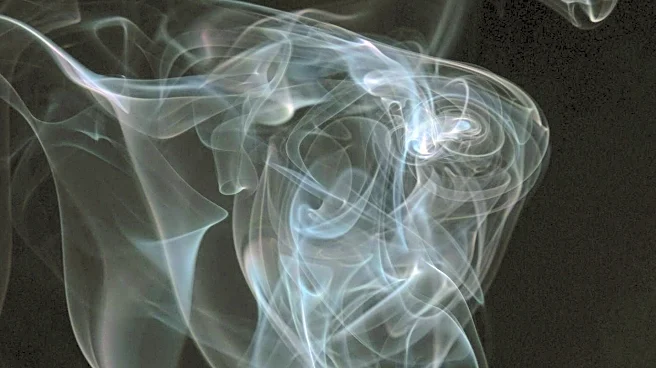What's Happening?
The term 'ghost' has undergone significant transformations in meaning and cultural representation over centuries. Originally derived from the Old English root 'gast,' the word initially referred to 'breath' or 'life,' and was used in Christian contexts
such as the Holy Ghost. Over time, the concept of ghosts evolved from benign spirits to malevolent apparitions, influenced by cultural shifts and literary works. The 19th century saw a rise in spiritualism, with séances becoming popular, challenging the notion that the living could not communicate with the dead. The appearance of ghosts has varied across cultures, with Western depictions often showing them as wispy, translucent figures, a concept that gained popularity through horror films and novels. The word 'ghost' has also influenced modern slang, with terms like 'ghost town' and 'ghosting' reflecting its spectral qualities.
Why It's Important?
The evolution of the word 'ghost' highlights the dynamic nature of language and cultural perceptions. As a staple of Halloween and horror genres, ghosts continue to captivate public imagination, influencing literature, film, and even social interactions. The term's adaptation into modern slang, such as 'ghosting,' underscores its relevance in contemporary communication, reflecting societal changes in relationships and technology. Understanding the historical and cultural journey of 'ghost' provides insight into how language adapts to reflect human experiences and fears, impacting how stories are told and understood across generations.
What's Next?
The fascination with ghosts and the supernatural is likely to persist, influencing future cultural and linguistic trends. As new forms of media emerge, the representation of ghosts may continue to evolve, potentially integrating with virtual and augmented reality experiences. The ongoing interest in spiritualism and the afterlife could lead to new interpretations and uses of the term 'ghost,' further embedding it in popular culture and language. Scholars and authors may continue to explore the etymology and cultural significance of ghosts, contributing to academic and literary discourse.
Beyond the Headlines
The cultural obsession with ghosts raises ethical and philosophical questions about life, death, and the afterlife. It challenges societal norms and beliefs, prompting discussions about the human condition and our understanding of existence. The portrayal of ghosts in media often reflects deeper fears and desires, serving as a mirror to societal anxieties and aspirations. As language evolves, the term 'ghost' may continue to serve as a metaphor for broader existential themes, influencing how individuals and communities perceive and interact with the world.

















